Top-Rated Debt Collection Agency in United States
Your trusted Debt Collection Agency in the United States. Submit your claim, experience fast, surefire recovery with zero upfront costs. Navigate our extensive guide for total debt collection knowledge.






The ultimate guide about debt collection in United States
Why you can trust this guide
At Debitura, we uphold the highest standards of impartiality and precision to bring you comprehensive guides on international debt collection. Our editorial team boasts over a decade of specialized experience in this domain.
Questions or feedback? Email us at contact@debitura.com — we update this guide based on your input.
Debitura By the Numbers:
- 10+ years focused on international debt collection
- 100+ local attorneys in our partner network
- $100M+ recovered for clients in the last 18 months
- 4.9/5 average rating from 621 reviews
Expert-led, locally validated
Written by Robin Tam (16 years in global B2B debt recovery). Every page is reviewed by top local attorneys to ensure legal accuracy and practical steps you can use.
Contributing local experts:
Last updated:
Tackling debt collection in the United States can be overwhelming. Let Debitura be your guide; through a blend of local knowledge and global experience, we turn the daunting process into a manageable one. This guide is your go-to tool for effective debt collection in the United States.
Principal Actors in U.S. Debt Recovery Operations
Navigating the U.S. debt recovery sector involves understanding key figures and their critical roles. From agencies and bailiffs, to lawyers specializing in debt collection, their collaborative efforts are crucial in legally enforcing debt repayment.
Debt Collection Agencies in United States
Debt collection agencies in the United States play a pivotal role in recovering debts on behalf of creditors. These organizations step in when consumers or businesses are unable to fulfill their payment obligations, covering a range of debts from medical bills and credit card payments to student loans and mortgages. Utilizing various communication methods, including phone calls and digital platforms, their mission is to ensure debts are paid while adhering to strict regulations. The Fair Debt Collection Practices Act (FDCPA) and recent updates, like Regulation F, set clear boundaries on their operations, prohibiting actions such as excessive contacting and ensuring transparency and fairness in collection efforts. While effective, agencies face limitations; for example, they cannot enforce debt recovery through legal judgments, highlighting a need for careful consideration when engaging their services.
Debt Collection Lawyers in the United States
In the United States, lawyers play an integral role in the debt collection process, stepping in when sophisticated legal assistance is required. Engaging a lawyer is particularly beneficial when intricate negotiations are in play or litigation becomes necessary. Lawyers specialized in debt collection bring to the table in-depth knowledge of both federal and state regulations governing debt recovery, ensuring that creditors' actions are both effective and legally compliant.
Debt collection lawyers assist in drafting legal notices, representing creditors in court, and providing strategic advice to optimize debt recovery efforts. This includes filing lawsuits against delinquent debtors and navigating the complexities of bankruptcy proceedings on behalf of creditors. Essential regulations guiding their operation include the Fair Debt Collection Practices Act (FDCPA), which sets boundaries on conduct during debt collection efforts, and various state laws that may impose additional requirements.
However, the role of these lawyers is not limitless. They must operate within the bounds of laws such as the FDCPA, which prohibits practices deemed abusive, deceptive, or unfair. Before involving a lawyer, creditors should ensure that all internal collection efforts have been exhausted and that there's a clear understanding of the debtor's financial situation, potentially increasing the likelihood of recovering the owed sums.
Indeed, the expertise of debt collection lawyers can be pivotal in navigating the complex terrain of debt recovery, particularly for international creditors unfamiliar with U.S. laws. Their involvement signifies a step up from standard collection efforts, pushing for legal avenues to recover due debts.
The Role of Bailiffs in the United States
In the United States, the term "bailiff" primarily denotes court officers responsible for maintaining order and courtroom security, which differs from their role in debt collection observed in other jurisdictions, such as the UK. Unlike in those countries where bailiffs possess the authority to enforce debt collection through property seizures or evictions, in the U.S., such powers are generally held by law enforcement officers or agents acting under court orders. The enforcement of debt collection, particularly when it involves seizing property or wage garnishment, requires legal action, culminating in a court's judgment.
For creditors, this means that prior to involving any form of law enforcement or bailiff-like intervention in the U.S., they need to navigate the judicial system. This involves filing a lawsuit against the debtor, proving the debt is owed, and obtaining a judgment. Post-judgment, specific court orders, such as writs of execution, can then authorize the seizure or garnishment actions, which, in some states, might involve the sheriff's department rather than bailiffs.
It's also crucial for creditors to be aware of federal and state laws that regulate debt collection practices, such as the Fair Debt Collection Practices Act (FDCPA), to ensure compliance and avoid legal repercussions. Given these complexities and restrictions, creditors often find it beneficial to engage with professional debt collection agencies or legal representatives to navigate the debt recovery process effectively.
Source: Consumer Financial Protection Bureau: Understanding Debt Collection
Understanding U.S. Legal Framework for Debt Collection
Navigating the labyrinth of U.S. debt collection laws is crucial to successfully retrieving debts. Adherence to these regulations not only propels efficient debt recovery, but also maintains equity in the process, fortifying trust and upholding integrity in business methodologies.
The Civil Court System in United States
The United States civil court system plays a pivotal role in resolving legal disputes, including those involving debt collection.
- Supreme Court: The apex of the judicial pyramid, reviews lower court decisions and has final say.
- Federal Courts: Deal with cases under federal law including bankruptcy and other specialized cases.
- State Supreme Courts: Highest court in a state, reviews decisions made by lower state courts.
- Intermediate Appellate Courts: Review decisions from lower courts, not available in all states.
- General Jurisdiction Trial Courts: Handle civil cases with higher amounts of dispute, without monetary limits.
- Limited Jurisdiction Trial Courts: Address specific matters like family, juvenile, or small claims cases.
An in-depthIn-depth understanding of this hierarchy aids in navigating the intricate legal landscape, especially in cases related to debt recovery. Each court tier serves a specific function, making it essential for creditors and debt collection agencies to ascertain the appropriate jurisdiction for their cases.
Key Debt Collection Laws and Legislation in the United States
The legal landscape for debt collection in the United States is complex, shaped by a combination of federal and state laws intended to balance the rights of creditors and consumers. Here's an overview of the key legislation governing debt collection activities:
- Fair Debt Collection Practices Act (FDCPA): This act is the cornerstone of consumer protection against abusive debt collection practices, covering personal, family, or household debts.
- Regulation F (Consumer Financial Protection Bureau): Amending the FDCPA, this regulation clarifies communication practices and the use of new technologies in debt collection.
- Bankruptcy Code: Governs the process of bankruptcy, offering pathways for debtors to eliminate or repay debt under the protection of the bankruptcy court.
- State Debt Collection Laws: Many states have their own laws related to debt collection, which may provide additional protections beyond the federal laws.
- Telephone Consumer Protection Act (TCPA): Regulates the use of telephone equipment for debt collection, including calls and SMS texts to consumers.
- Fair Credit Reporting Act (FCRA): Governs the collection, dissemination, and use of consumer information, including information related to debts and credit reporting.
- Truth in Lending Act (TILA): Requires clear disclosure of key terms of credit and loan agreements, impacting the collection of certain types of debt.
These laws empower consumers with rights to dispute and verify debts, limit the ways in which collectors can contact them, and take legal action against unlawful collection practices. However, they also establish clear guidelines for creditors and collectors, fostering a legal framework that allows for the ethical, fair collection of debts. It's important for both creditors and consumers to understand these laws to navigate the debt collection process effectively. For international creditors, navigating this landscape can present additional challenges, emphasizing the need for expert guidance and support from experienced agencies like Debitura, which brings a decade of experience in debt recovery in the United States and a deep understanding of its legal intricacies.
Consumer Protection and Fair Debt Collection Practices in the United States
In the United States, consumer protection in the realm of debt collection is upheld through robust regulations aimed at preventing unfair practices. Ensuring fairness and transparency, these measures shield consumers from undue harassment and misinformation.
- Fair Debt Collection Practices Act (FDCPA): Prohibits abuse, misleading representations, and unfair practices in debt collections, enforcing strict rules on how collectors must interact with debtors.
- Consumer Financial Protection Bureau (CFPB) Regulation F: Provides clarifications to the FDCPA, limiting contact frequency, enforcing clearer validation notices, and setting guidelines for digital communications.
- Consumer Rights: Including the right to dispute the debt within 30 days of first contact, request verification of the debt, and insist on ceasing communication from debt collectors through written request.
- Prohibited Practices: Debt collectors are not allowed to harass, oppress, or abuse any person in connection with the collection of a debt, including specific prohibitions on calling time and disclosure of debts to third parties.
- Validation Notice Requirement: Debt collectors must send a detailed notice of the debt to the consumer, including the amount of the debt, the creditor's name, and the debtor's rights.
With these safeguards in place, consumers in the United States are better equipped to handle interactions with debt collection agencies. Importantly, these regulations not only foster a more fair and respectful debt collection process but also empower consumers to know and exercise their rights fully. While the legal landscape can appear daunting, understanding these key protections can significantly mitigate the stress of dealing with debt collectors and ensure that consumer dignity and rights are upheld throughout the debt collection process.
Understanding Amicable Debt Collection in United States
Let's delve into the manageable world of amicable debt collection in the United States. In this simplified, pre-legal process, debts are settled collaboratively, avoiding court involvement. We'll highlight the crucial strategies and considerations for effectively outsourcing this less complicated, quicker method.
- Statute of Limitations: Varies by state, typically ranges from three to six years for most consumer debts.
- Negotiating Settlements: Assess debtor's financial situation; aim for mutually agreeable repayment terms, documented in writing.
- Debt Delinquency: Debts become delinquent post-due date or post-grace period; impacts credit score once reported to credit bureaus.
- Credit Reporting: Delinquent debts reported to credit bureaus can significantly affect a debtor's credit score.
- Payment Arrangements: Engaging in a repayment plan can reset the statute of limitations on a debt.
- Rights and Enforcement: Creditors retain rights to pursue remaining debt, subject to federal and state laws.
- Dispute Resolution: Allows for verification of debt validity or amount without litigation, ensuring fair practices.
- Federal and State Regulations: Adherence to regulations, like the Fair Debt Collection Practices Act (FDCPA), is crucial.
- Resetting the Clock: Certain actions, such as making a payment, can reset the statute of limitations.
- Professionalism: Maintaining professionalism facilitates smoother negotiation and may preserve future relations.
Amicable Debt Recovery in the United States
Respectful debt recovery focuses on a strategy that centers on building and maintaining relationships, leveraging empathy and dialogue rather than engaging in conflict. This approach seeks to foster a constructive connection between the creditor and the debtor, crafting solutions that are considerate of the debtor's circumstances while also securing the creditor's ability to reclaim funds. It adopts a cooperative method, ideal for straightforward claims, sidestepping the expenses and complications associated with legal proceedings.
We advocate for the initiation of the debt recovery process through respectful means, barring instances where the claim is contested or entangled in intricate legal matters.
The Integral Role of Collection Agencies in Respectful Debt Recovery
In the realm of respectful debt recuperation, collection agencies play a crucial role, particularly when creditors find themselves without the requisite time or know-how for effective debt retrieval. Agencies such as Debitura provide tailored services that begin with the accurate identification of debts and debtors, moving on to the commencement of communications via reminders or formal notifications. Their neutral perspective, free from personal involvement, frequently results in more effective debt recovery by offering unbiased, professional facilitation.
Benefits of Opting for an Amicable Debt Settlement
Choosing respectful debt settlement is advantageous for all involved parties; creditors avoid legal expenses and maintain important business relationships thanks to the considerate nature of the process. Debtors are presented with more feasible repayment conditions, alleviating financial pressure and promoting positive perceptions of the creditor. This method emphasizes dignity and empathy, cultivating an environment conducive to meeting financial responsibilities.
Shifting from Amicable to Legal Debt Collection
Although respectful debt collection presents numerous advantages, certain scenarios may call for contemplation of legal measures. Indications for transitioning towards legal collection include lack of response, consistent failure to honor commitments, or intentional avoidance by the debtor. Opting for legal recourse should be a thoughtfully weighed decision, considering the substantial financial and temporal implications of legal actions, and is generally regarded as a final step after exploring all respectful avenues.
Explore our state-by-state debt-collection guides
If you operate in specific U.S. states, dive into the detailed guides below for state-level regulations, statutes, timelines, and best practices. For a full view of our regional coverage, visit our North-America hub.
Understanding Legal Debt Collection in the US
When amicable recovery efforts fall short, the judicial or legal debt collection process comes into play. This involves securing a court order with the help of bailiffs to enforce claims. Provided the case doesn't fall within the small claims limit, legal assistance is usually required. In this section, we delve into the specifics of the judicial debt collection process in the United States.
- Agencies vs. Small Claims Court: Decision impacts the approach and potential costs for debt recovery.
- Choosing the Proper Venue: Involves assessing debt amount and jurisdictional variances state by state.
- Small Claims Accessibility: Designed for relatively informal proceedings without mandatory legal representation.
- Fair Debt Collection Practices Act: Governs ethical conduct in debt collection, essential for agency compliance.
- Legal and Court Fees: Include court filing and potentially attorney fees, affecting the cost-efficiency of judicial collection.
- Judicial Process Timelines: Can vary widely, impacting the duration from litigation to debt recovery.
- Debtor Rights: Protections against harassment and misinformation necessitate a balanced collection approach.
- Variability Across Jurisdictions: U.S. federal structure introduces state-specific regulations affecting collections.
- Enforcement and Civil Liability: Creditors must avoid liabilities under the FDCPA and related laws.
- Recovering Legal Costs: Some scenarios allow creditors to recoup legal costs, influencing strategic decisions.
Shifting from Amicable to Judicial Debt Collection in United States
In the realm of debt recovery, the methods employed can broadly be divided into amicable and judicial processes. Amicable debt collection, often an initial step, encompasses efforts to negotiate payment and settle debts without involving the courts, relying instead on direct communication and agreement between creditors and debtors.
However, situations arise where this conciliatory approach proves ineffective. Disputes over the legitimacy of the debt, refusal by the debtor to engage in negotiations, or the failure to abide by agreed payment plans can necessitate a transition to judicial debt collection. This method involves initiating legal proceedings to enforce debt recovery through court orders and, potentially, garnishments or liens.
The complexity of navigating the judicial system, and the importance of the detailed legal proceedings that underpin debt collection, underscore the essential role of legal counsel. Seeking professional representation not only ensures compliance with pertinent laws but also maximizes the likelihood of a favorable outcome. At Debitura, based on our decade of experience, we emphasize the critical nature of expert legal guidance in executing successful judicial debt recovery strategies in the United States.
The Importance of a Formal Judgment in United States
A court order, or formal judgment, is a legal decree issued by a court that validates a creditor's claim against a debtor and authorizes specific recovery actions. To obtain one, a creditor must initiate a lawsuit against the debtor, providing evidence of the debt. The issuance of a court order marks a pivotal juncture in debt recovery, legally enforcing the debt and empowering creditors with mechanisms, such as garnishing wages or seizing assets, to recover owed amounts.
Enforcing a claim with a court order significantly increases a creditor's leverage. Once obtained, various methods - ranging from imposing liens on the debtor's property to instructing law enforcement agencies to seize assets - become viable. Initiation of this process requires a detailed understanding of legal procedures, often necessitating the expertise of a specialized legal professional to navigate intricacies successfully.
Obtaining a court order in the United States necessitates meticulously following legal procedures, including filing a lawsuit, presenting evidence, and possible court appearances. This process underscores the importance of accurate documentation and the strategic presentation of the creditor’s case. (Consumer Financial Protection Bureau).
Determining the Appropriate Court in United States
The choice of court for pursuing a debt collection lawsuit in the United States hinges on factors such as the claim's size and complexity. Small Claims Courts are tailored for disputes involving relatively small amounts — usually under a specific threshold, which varies by state but can range up to $25,000. This court offers a streamlined, more accessible process for individuals and businesses, without the need for legal representation.
For claims surpassing these limits or involving more intricate legal questions, higher courts—such as municipal, superior, or district courts—may be more appropriate. These cases often necessitate professional legal counsel, given the complexity of the procedures and the importance of effectively navigating legal strategies.
Ultimately, the determination of which court is best suited to a particular debt collection case balances the potential for recovery against the costs and requirements of legal action. Through our extensive experience, Debitura assists clients in making these critical decisions, leveraging our thorough understanding of the United States judicial system to guide creditors toward the most effective forum for their debt recovery needs.
Small Claims Court in United States
The concept of Small Claims Court in the United States is straightforward but impactful. It is a legal avenue designed to resolve disputes involving relatively small monetary amounts without the complexity, high costs, and formalities of higher courts. Across the states, the monetary limit for small claims varies, approximately ranging from $2,500 in some states to as high as $25,000 in others, making it an accessible option for individuals and businesses seeking swift justice for moderate claims.
One of the most pronounced advantages of opting for Small Claims Court is its simplicity and speed. The court’s streamlined procedures mean that cases can be heard and decided quickly, often without the need for an attorney. This not only speeds up the resolution process but also significantly reduces legal expenses. Moreover, the informal setting of Small Claims Court can be less intimidating, encouraging self-representation and making the judicial system more accessible to the layperson.
However, the advantages come with certain limitations. Though effective for resolving disputes over small monetary values, the jurisdictional cap on claims means larger disputes must be taken to higher courts. Additionally, while obtaining a judgment may be relatively straightforward in Small Claims Court, enforcing that judgment – collecting the awarded amount – often proves challenging. As much as these courts can mandate payment, they do not directly enforce the collection, placing the onus on the claimant to pursue further actions for debt recovery.
Legislatively, Small Claims Courts operate under state-specific laws that define their jurisdiction, procedures, and limits. While guided by the overarching principles of providing a simplified legal forum for smaller claims, each state has the autonomy to tailor these aspects to meet its judicial and social needs. This flexibility ensures that Small Claims Courts can function efficiently within the legal and procedural frameworks of their respective states. It's crucial for litigants to familiarize themselves with their state’s particular laws governing Small Claims Courts, including claim limits and filing procedures, to effectively navigate the system.
Small Claims Court serves as an essential component of the United States judicial system, offering an expedited, cost-effective route to justice for small-scale disputes. As such, understanding its advantages, limitations, and governing laws is crucial for anyone considering this option for debt recovery or dispute resolution. At Debitura, based on our decade of experience in debt recovery, we recognize the value of Small Claims Court as a strategic tool in the judicious collection process within the United States, balancing efficacy and practicality to secure resolutions.
Ordinary Proceedings in the United States
Following the exploration of small claims procedures, it's pivotal to discuss the ordinary proceedings in the United States—a legal path often tread for more substantial debt collection cases. Unlike the less formal small claims court, ordinary proceedings involve the main trial courts and require adherence to a more structured set of rules and procedures. This pathway is designed for cases that exceed the monetary threshold of small claims or involve complexities that necessitate a detailed examination of evidence and legal principles.
Advantages of Ordinary Proceedings vs Small Claims Court
One significant advantage of ordinary proceedings over small claims is their capacity to handle higher monetary claims, offering the potential for full recovery of significant debts. These proceedings grant parties more comprehensive legal tools, including formal discovery processes to unearth pertinent evidence and a more traditional court setting that can handle complex legal arguments. Additionally, the presence of legal representation can provide strategic counsel and navigate the procedural nuances—enhancing the chances of a favorable outcome.
Requirement of Legal Representation in Ordinary Hearings
A distinguishing feature of ordinary proceedings is the norm - and oftentimes the necessity - of legal representation. While small claims courts are designed for individuals to represent themselves, the complexity of ordinary court processes almost always necessitates hiring an attorney. This requirement not only ensures proper adherence to procedural rules but also significantly influences the direction and the outcome of the case through skilled advocacy and negotiation.
Laws/Regulations Governing Ordinary Proceedings
The framework for ordinary proceedings is determined by a combination of federal and state laws, alongside specific court rules that govern civil procedure. Predominantly, the Federal Rules of Civil Procedure provide a comprehensive guide for federal courts, while each state has its own rules for state court proceedings. These regulations dictate everything from filing a lawsuit, serving documents on the opposing party, conducting discovery, and ultimately presenting the case in trial. Moreover, the Fair Debt Collection Practices Act (FDCPA), although more directly relevant to debt collection efforts outside court, still plays an essential role by setting the legal tone for what is considered fair and equitable in the pursuit of debt recovery.
In conclusion, ordinary proceedings offer a structured and legally sound avenue for recovering larger debts where the merits of the case can be thoroughly examined under the guidance of legal professionals. Stakeholders considering this route must deliberate on the financial implications, given the potential for increased costs associated with hiring attorneys and formal court processes. Nonetheless, when managed effectively, ordinary proceedings open the door to substantial debt recovery not feasible through small claims court alone.
Mastering Debt Enforcement in the United States
Once armed with a court edict from the judicial debt collection stage, debt enforcement empowers you to put that ruling into action. Supervised by official bailiffs, this phase lets creditors capture the debtor's assets, ensuring successful execution of their claim. Read on to grasp the nuances of legally driving your claim to fulfillment in the United States.
- Legal Framework: Governed by federal and state laws, including the Fair Debt Collection Practices Act.
- Enforcement Authorization: Debt recovery typically requires authorization through court judgments.
- Court Order Necessity: A court order is often essential for actions like wage garnishment and asset seizure.
- Regulations: There's no uniform "Bailiff Act;" regulations vary by state, influencing bailiff activities.
- Bailiff Role: Bailiffs enforce court orders and may perform asset seizures, but their duties vary across states.
- Financial Considerations for Creditors: Costs, potential return on investment, and compliance with debtor protection laws are key.
- Asset Tracing: A critical step in preparation, involving evaluating the debtor’s assets for potential recovery.
- Timeframe: The duration of the debt enforcement process can vary, influenced by legal proceedings and asset evaluation.
- Asset Seizure: Governed by both federal and state laws with specific procedures for what can be seized.
- Salary Attachment: Legal process enabling creditors to collect directly from debtor’s wages under specific guidelines.
The Role of Bailiffs in Debt Enforcement
In the United States, the role of bailiffs in debt enforcement is more commonly associated with court officers or sheriff's deputies who provide security and enforce court orders rather than directly collecting debts. Their responsibilities include:
It's important to note that in the U.S., the term "bailiff" may not be directly synonymous with debt collectors or officers specifically assigned to collect debts. Entities involved in debt collection are often governed by state laws and the Fair Debt Collection Practices Act (FDCPA) at the federal level.
The Process of Debt Enforcement
Debt enforcement in the U.S. is a structured process designed to safeguard the rights of both creditors and debtors. It usually involves several steps:
These steps are regulated by federal laws like the FDCPA and the Consumer Credit Protection Act, as well as various state laws.
Legal Framework for Bailiff Operations and Debt Enforcement
The legal basis for debt enforcement and bailiff operations in the U.S. includes:
Both federal and state laws aim to balance the rights of creditors to recover debts with protections against unfair practices for debtors.
Pre-enforcement Actions
Prior to proceeding with formal enforcement, several preparatory steps are advisable for both creditors and collectors to ensure a smooth process:
These preparatory actions not only facilitate a more effective debt recovery process but also uphold the integrity and compliance of debt collection practices.
Recovering Your Claim Through Insolvency Procedures in the United States
When established enforcement measures falter due to a debtor’s insolvency, creditors often resort to insolvency procedures. This process involves distributing debtor's assets among the creditors based on their priority rights. It's crucial for creditors, particularly those with high-priority, secured debt, to assess the viability of these proceedings. Don’t get caught off guard when a debtor or another creditor initiates insolvency protocol. Swift, decisive action is needed to lodge your claim and actively partake in the procedures to recuperate your debt. As a guide for creditors, we’ll be shedding light on maneuvering through insolvency procedures in the United States.
- Governing Laws: Bankruptcy governed by the U.S. Bankruptcy Code, primarily Chapters 7 and 11, tailored for liquidation and reorganization, respectively.
- Filing Requirements: Open to individuals, partnerships, and corporations without debt amount restrictions. Specific debt limits apply for small business cases under Chapter 11.
- Priority Rules: Claims paid based on a hierarchy established by the Bankruptcy Code, favoring secured creditors over unsecured creditors.
- Associated Costs: Filing fees range from $335 for Chapter 7 to $1,738 for Chapter 11, excluding legal and administrative fees.
- Timeframe: Chapter 7 proceedings can conclude in a few months, while Chapter 11 could extend to several years, depending on the case complexity.
- Expected Outcomes: Varies from partial repayment under Chapter 7 liquidation to structured reorganization plans under Chapter 11.
- Creditors’ Rights: Secured creditors enjoy privileges based on collateral; unsecured creditors' claims have lower priority.
- Post-Bankruptcy Scenarios: A discharge prohibits further collection actions on resolved debts; secured creditors may pursue collateral.
- Documentation Requirements: Creditors must file proof of claim, detailing owed debt and collateral evidence in bankruptcy cases.
- Creditors' Participation: Creditors can oppose discharge or plan confirmation and attend the 341 meeting to question the debtor.
The Legal Framework for Insolvency Procedures in United States
The United States Bankruptcy Code, supplemented by state laws, sets the framework for insolvency procedures, accommodating various scenarios under separate chapters. Key highlights include:
- Chapter 7 (Liquidation): Specifically designed for liquidating the assets of both individuals and businesses.
- Chapter 11 (Reorganization): Allows businesses and certain individuals to reorganize debts while keeping the business afloat.
- Chapter 13 (Adjustment of Debts): Enables individuals with regular income to develop a plan to repay all or part of their debts.
Bankruptcy proceedings must comply with the Federal Rules of Bankruptcy Procedure and local court rules.
Types of Insolvency Proceedings
Insolvency proceedings in the United States are primarily known for three types, each with distinct features suited to specific debtor scenarios:
- Regular Insolvency Proceedings (Chapter 7 & 11): These processes address liquidation for Chapter 7 filings and debt reorganization for Chapter 11 filings.
- Self-Administration: Particularly in Chapter 11 cases, this allows the debtor to maintain control of business operations during the reorganization process.
- Protective Shield Procedure: Not explicitly defined in the U.S. Bankruptcy Code, this concept aligns with the debtor-in-possession (DIP) feature of Chapter 11, offering a debtor protection from creditors while seeking to reorganize.
Thresholds and Conditions
The initiation of bankruptcy proceedings includes specific thresholds and conditions, influenced by:
- Qualifying Debts: Unlimited for Chapter 7 and 11, with precise limits for small business and individual debtors in Chapter 11 Subchapter V cases.
- Cost: Varying filing fees for different chapters plus potential attorney fees.
- Time Frame: Chapter 7 typically concludes within a few months. Chapter 11 and 13 cases may extend over several years depending on complexity.
Creditor's Rights and Priorities in Insolvency Proceedings
Creditors' rights and the prioritization of their claims are fundamental aspects of the insolvency process:
- Priority Ranking: The Bankruptcy Code establishes priority with secured creditors typically atop, followed by unsecured creditors and equity holders.
- Secured vs. Unsecured Creditors: Secured creditors hold collateral claims on assets, giving them higher priority over unsecured creditors.
- Insolvency Table Registration: Creditors must file a proof of claim to be acknowledged in the bankruptcy proceedings and potentially recover funds.
Find a Local Debt Collection Lawyer
Need court-ready representation? Share your case once and receive up to three proposals from vetted litigation attorneys—free, fast, and with no commitment.
- Verified specialists
- Quotes in 24 h, no hidden fees
- Fair, pre-negotiated rates

CISDRS is a premier law firm in Los Angeles offering effective Debt Collection services in the United States, positioning itself as the go-to partner for debt recovery since 2013 with a no-recovery, no-fee model and recognition as a Top-100 leading law firm.
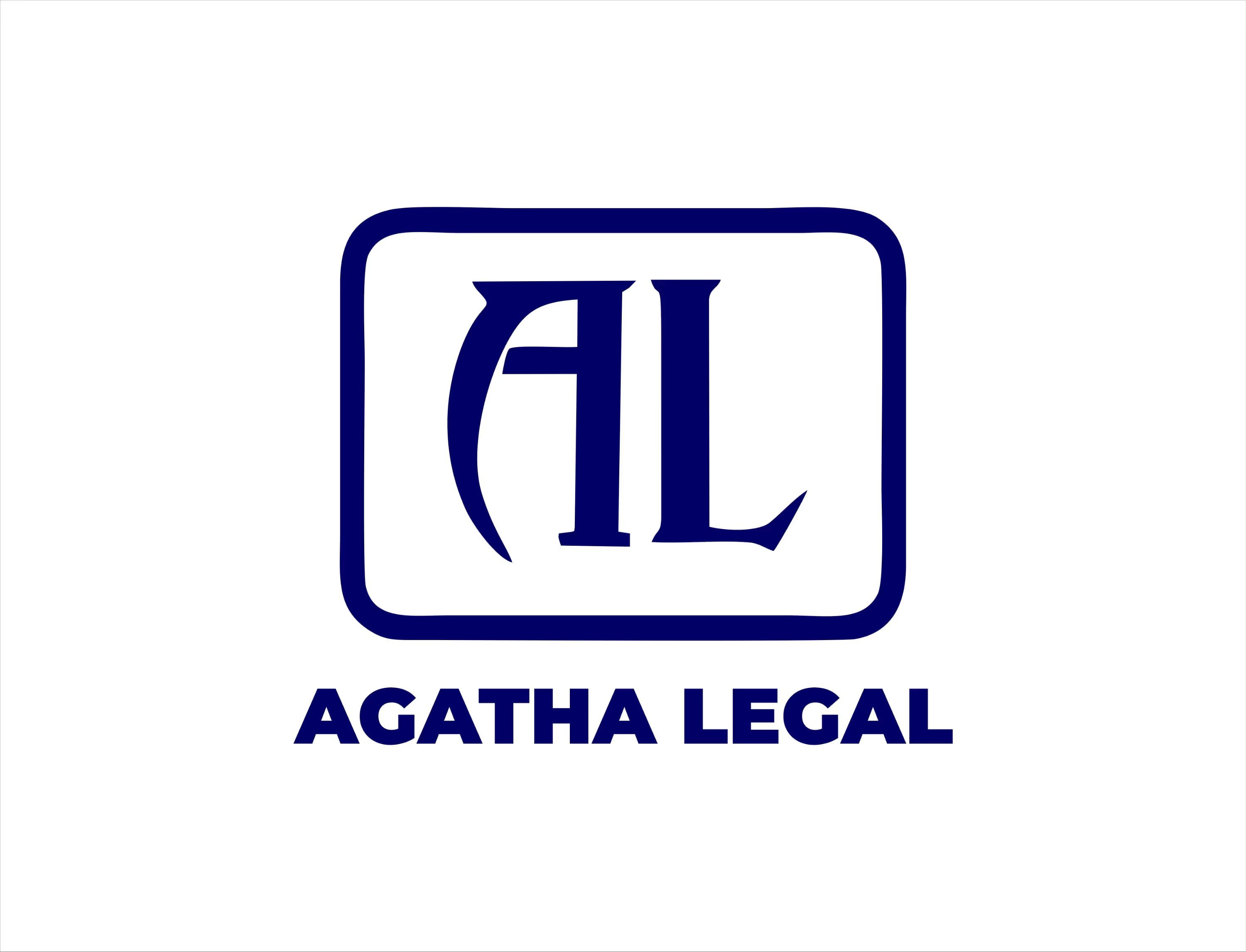
Agatha Legal is a premier law firm in Lagos offering effective Debt Collection services in Nigeria, positioning itself as the go-to partner for debt recovery since 2019, with a strong presence in the US, and recognized by multiple awards and memberships.
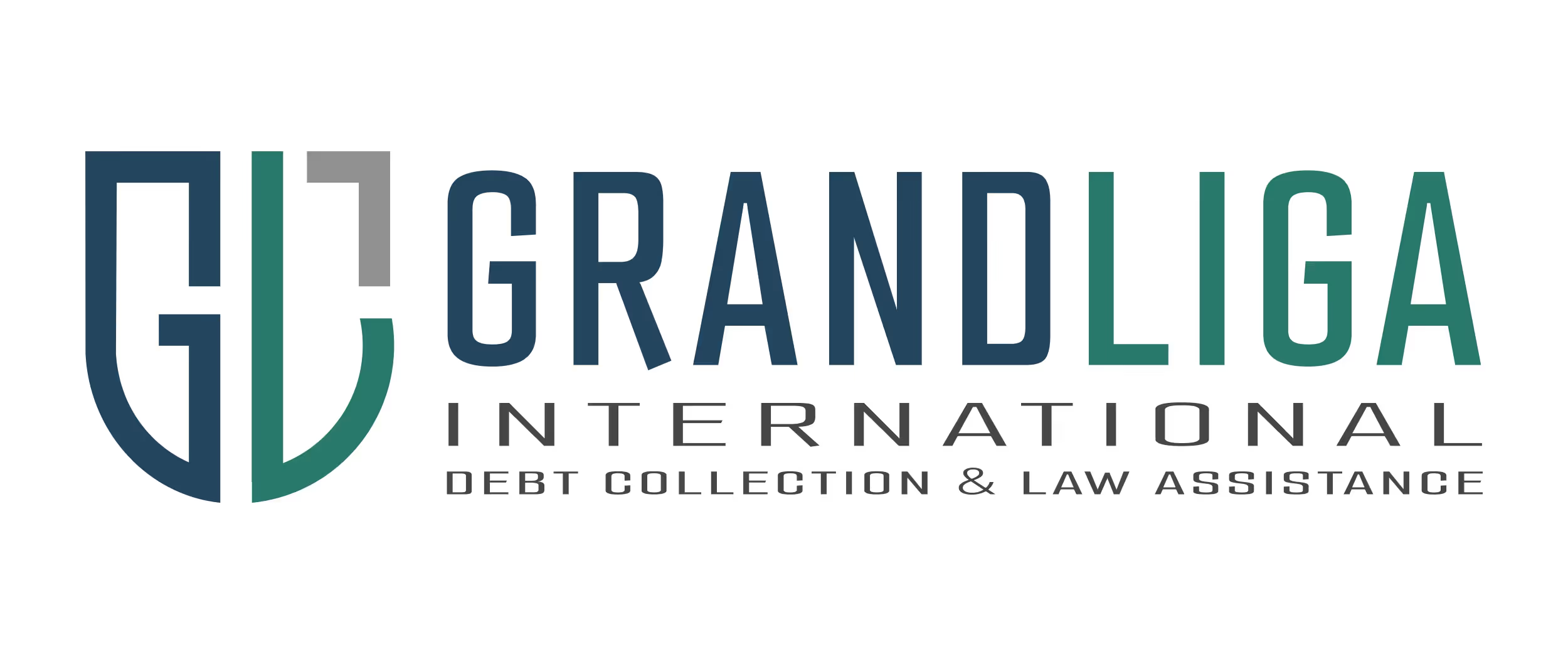
Grandliga is a premier law firm in Dover offering effective Debt Collection services in the USA, established in 2011, leveraging a "No win, No fee" model, with global reach across 183 countries and memberships in TCM Group, Expert Planet, and FENCA.

Debt Recovery Resources is a premier debt recovery agency in the United States offering effective risk-free debt collection services, recognized as a Top 10 Debt Collection Agency in 2022 and a member of the CLLA, exclusively partnering with Debitura for No Cure No Pay solutions.

Vasiliou Law is a premier law firm in Astoria offering effective Debt Collection services in the United States, established in 2013, and a member of the New York State Bar Association, making it the go-to partner for debt recovery.

W.S. Liesen Law Firm LLC is a premier law firm in Saint Louis offering effective debt collection services in the United States, positioning itself as the go-to partner for debt recovery since 2024 with a flexible pricing model and membership in The Missouri Bar.
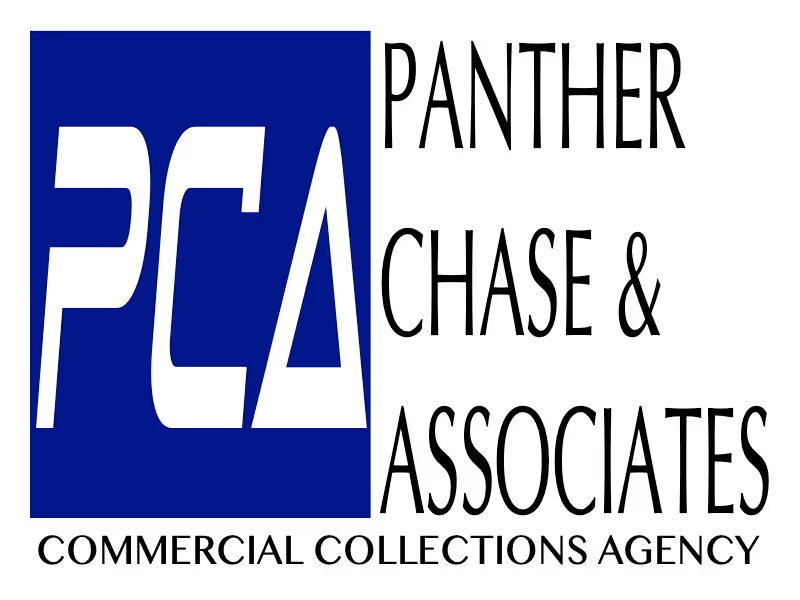
Panther, Chase, & Associates LLC is a premier debt recovery agency in Tampa offering effective Debt Collection services in the US, renowned for its 85.3% recovery rate and global reach across 180+ jurisdictions since 2018, serving sectors like software and technology.
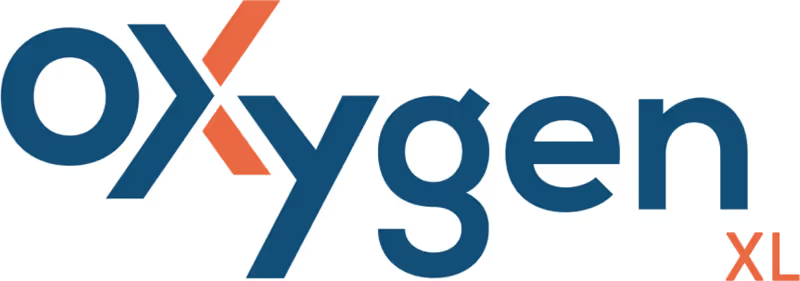
Oxygen XL is a premier debt recovery agency in the United States offering effective risk-free Debt Collection services, recognized as the go-to partner for debt recovery since 2011 with a nearly 80% recovery rate, ACA International membership, and exclusive Debitura partnership for No Cure No Pay collections.

Aaron Bryant Stewart & Cross is a premier debt recovery agency in the United States offering effective risk-free Debt Collection services, established in 2006 and serving North America and select international markets, as the exclusive Debitura partner in the U.S., providing No Cure No Pay collections based on Debitura's risk-free standard terms and pricing, and is a member of ACA International.
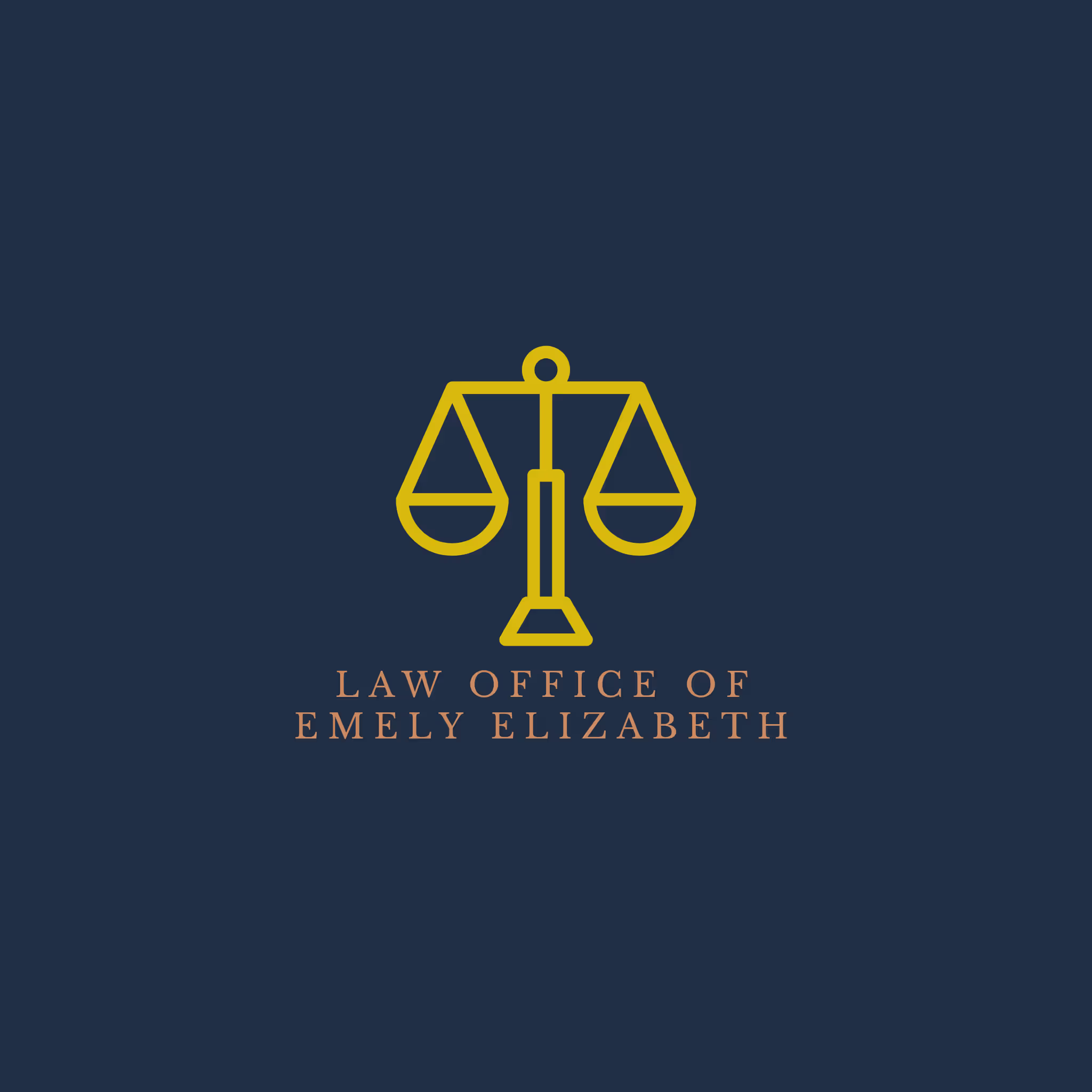
Law Office of Emely Elizabeth, L.L.C. is a premier law firm in the USA offering effective risk-free debt collection services, established in 2023, recognized with the LII Gold award, and a member of the Commercial Law League of America; as an exclusive Debitura partner, it provides No Cure No Pay debt collection based on Debitura’s risk-free standard terms and pricing.





.svg)

.webp)
.png)

.png)
.svg)












.svg)

